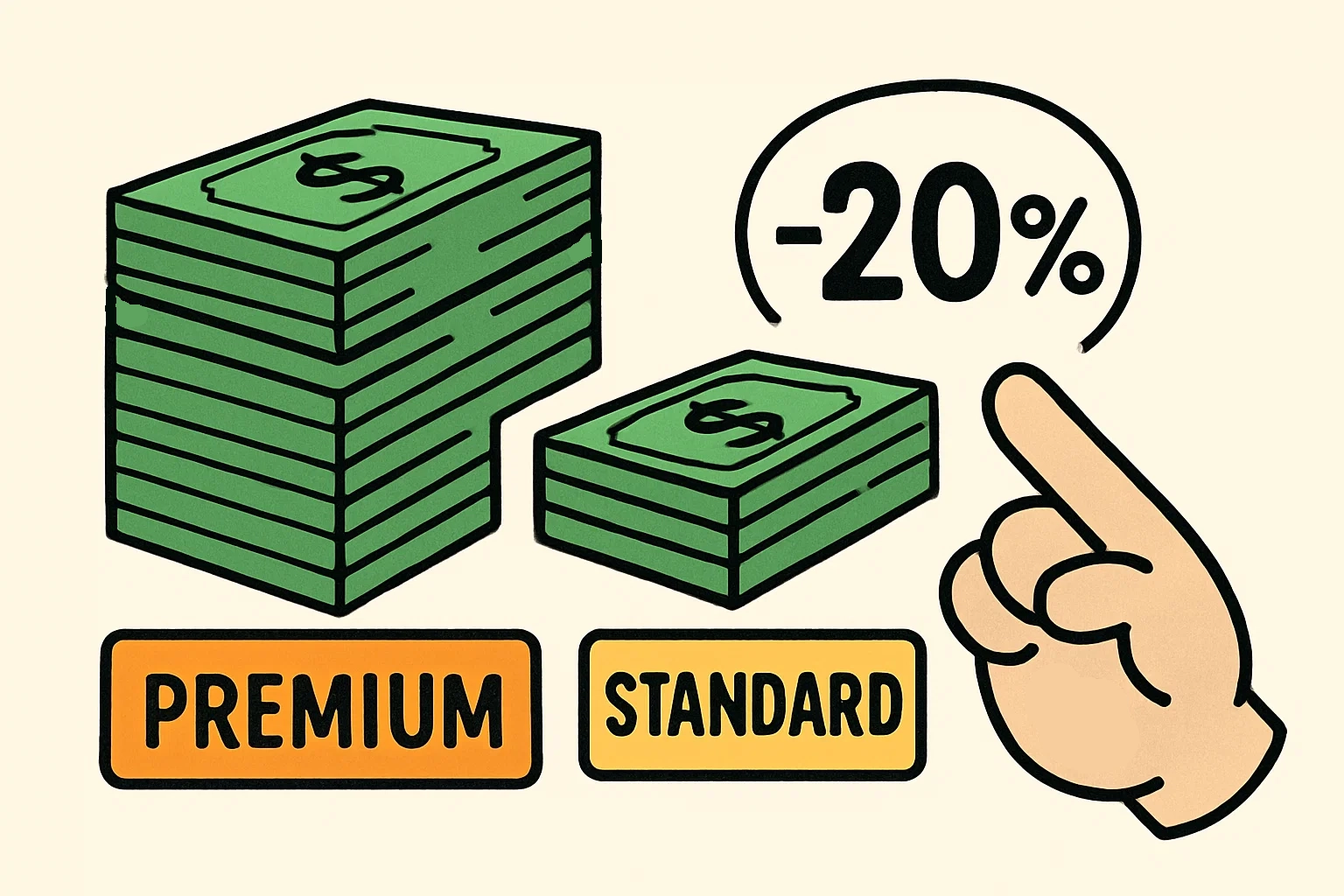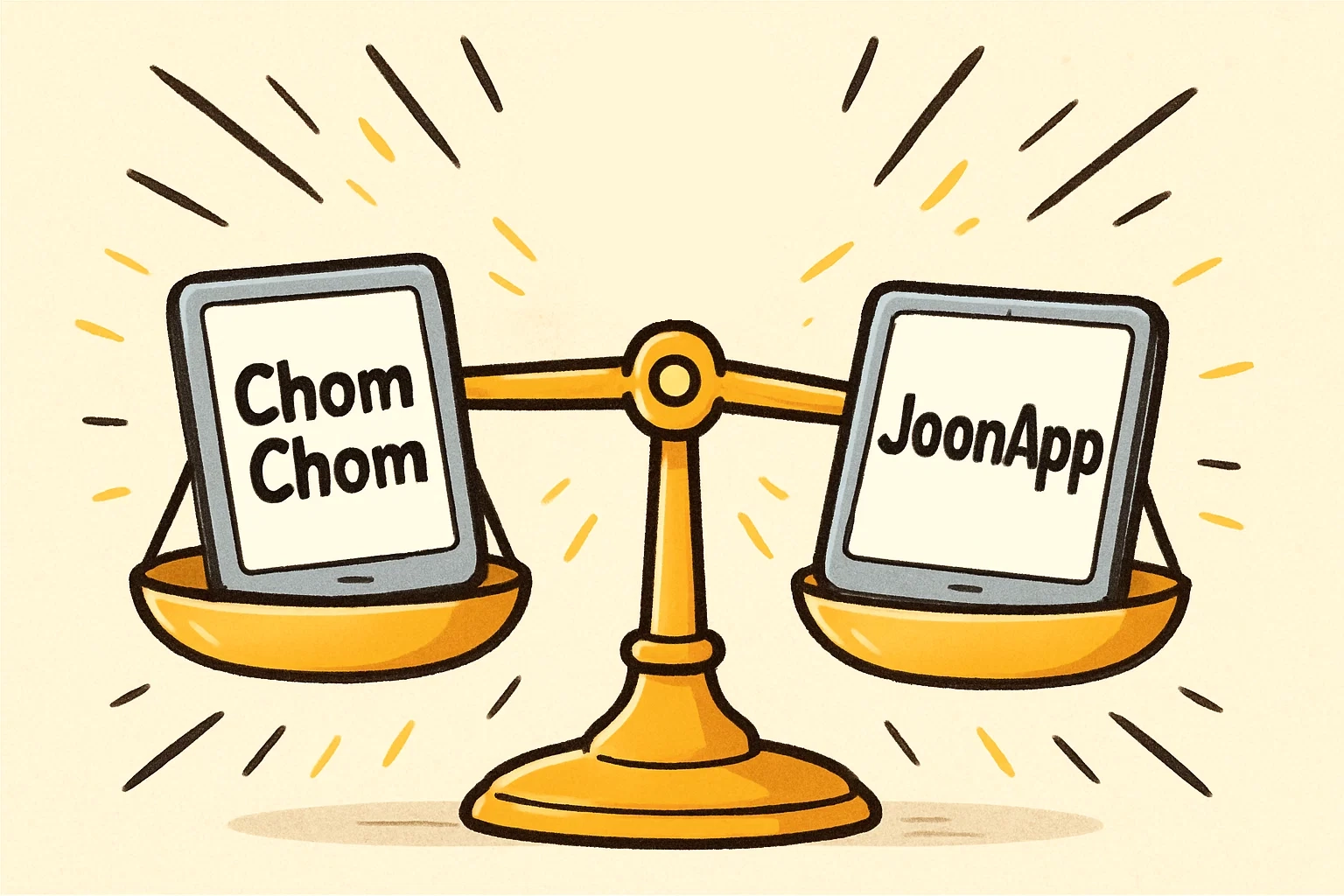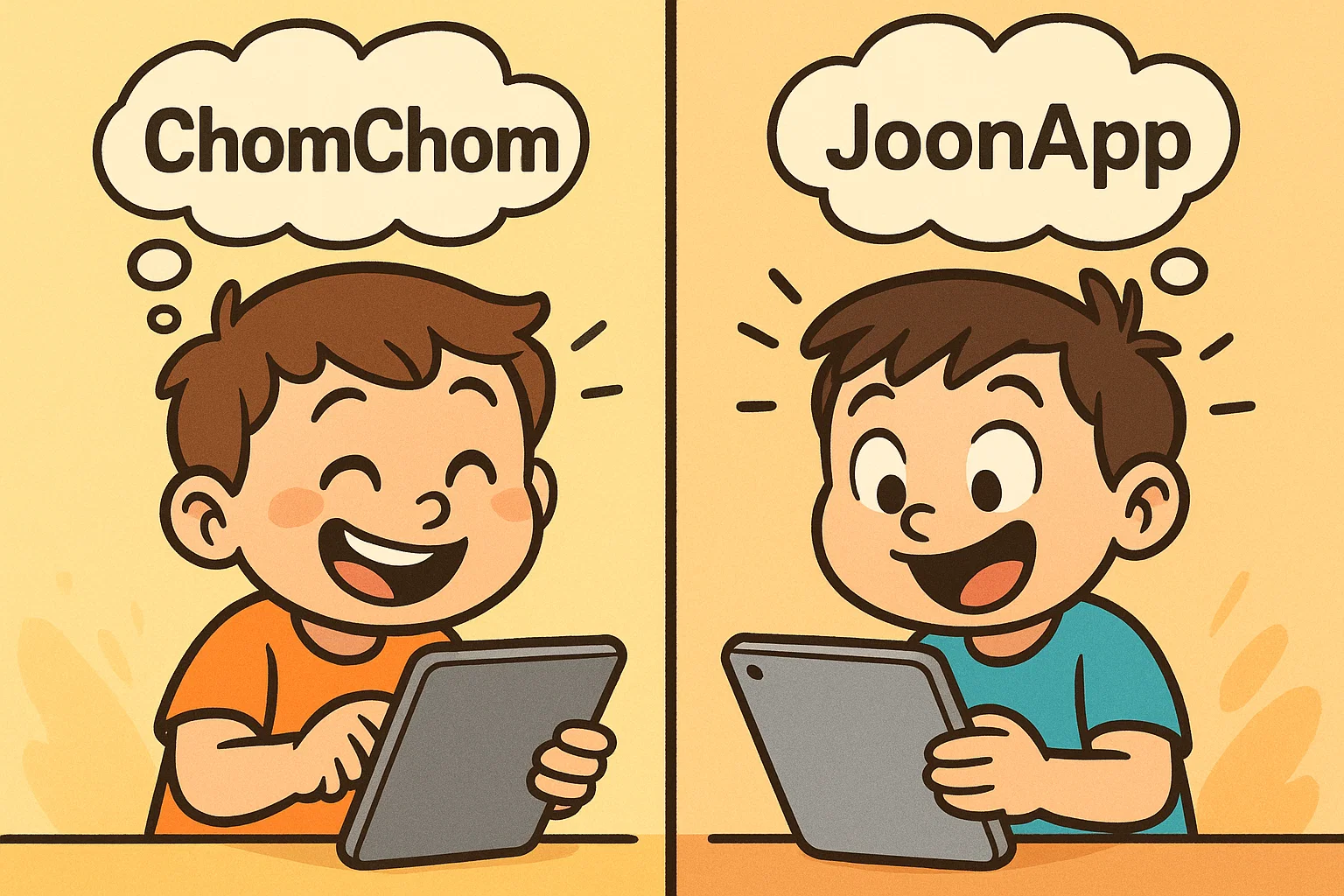Selecting the right support tools can make a meaningful difference when raising children with ADHD. Digital solutions have evolved beyond simple reminders, offering structured environments where kids build executive function capabilities while parents gain valuable insights. This comparison examines two popular platforms—chomchom and joonapp—to help your child develop essential skills through technology designed specifically for their needs.
Both apps address common challenges families face, from managing daily routines to building life skills. Understanding how these platforms differ in approach, features, and value helps parents make informed decisions about which tool aligns best with their family’s unique situation.
Key Differences App Focus
The fundamental distinction between these platforms lies in their core philosophy. chomchom emphasizes emotional regulation and behavioral development through skill-building games, while joonapp centers on task management and routine establishment. This difference shapes every aspect of how each app functions.
ChomChom Specialty Features
chomchom was designed by child development specialists to address executive function challenges that children with ADHD frequently encounter. The platform uses interactive activities to help children recognize emotional states, practice self regulation, and develop coping strategies.
Core Capabilities:
| Feature Category | Description |
| Emotion Recognition | Activities that help children identify feelings in themselves and others |
| Behavioral Challenges | Exercises targeting impulse control and attention span |
| Progress Tracking | Visual representations showing skill development over time |
| Parent Resources | Educational content explaining developmental milestones |
The app includes modules focused on emotional intelligence, allowing kids to explore scenarios where they practice responding to frustration, anxiety, or excitement. Each activity adapts based on performance, ensuring content remains appropriately challenging without overwhelming the child.
Research from Sage Journals indicates that children aged 5-12 respond particularly well to visual learning combined with immediate feedback. chomchom leverages this by presenting skills through game mechanics rather than traditional instruction, making the learning process feel less like work.
JoonApp Core Functionality
joonapp takes a practical approach, transforming household responsibilities into an engaging quest system. Parents create task lists, and children complete them to earn rewards for their virtual pet—a donut-shaped character that thrives when tasks are finished.
Primary Functions:
- Chore Assignment: Parents set up recurring or one-time tasks
- Quest Completion: Children check off finished activities
- Pet Care Simulation: Virtual pet responds to task completion
- Habit Formation: Consistent routines build through repetition
The platform excels at addressing the executive dysfunction that makes daily routines challenging for children with ADHD. By externalizing memory and providing clear structure, joonapp helps children manage expectations that might otherwise feel abstract or overwhelming.
One parent shared: “Before using this system, mornings were chaos. Now my daughter knows exactly what needs doing, and the virtual pet gives her motivation to stay on track.”
Target Age Group App Usage
Age appropriateness significantly impacts effectiveness. chomchom serves children aged 3-12, with content specifically calibrated for developmental stages. Younger children access simpler activities focused on basic emotion recognition, while older kids engage with complex scenarios involving social situations and self-management.
joonapp targets children aged 6-12, with optimal results reported for the 7-10 range. The task-based structure requires children to read instructions and understand abstract concepts like time management, making it less suitable for preschoolers.
Age Recommendations:
| Age Range | ChomChom Suitability | JoonApp Suitability |
| 3-5 years | Excellent | Limited |
| 6-8 years | Excellent | Good |
| 9-12 years | Good | Excellent |
Parent Dashboard Insights
Both platforms recognize that supporting children with ADHD requires giving parents visibility into progress and challenges. chomchom provides detailed analytics showing which skills children are practicing, how performance changes over time, and areas where additional support might help.
The dashboard highlights patterns, such as times of day when focus improves or specific activities that generate frustration. This data helps parents understand their child’s behavioral patterns beyond what they observe directly.
joonapp’s parent interface focuses on task completion rates and consistency. Parents see which responsibilities children complete independently versus those requiring reminders. The system also tracks streaks, helping families celebrate sustained effort.
Gamification Engagement Methods 🎮

How these apps maintain child interest differs substantially, affecting long-term engagement and skill development.
Motivation System Comparison
chomchom uses intrinsic motivation strategies, encouraging children to engage because activities feel rewarding in themselves. Games are designed to be enjoyable while teaching skills, reducing reliance on external rewards.
joonapp employs extrinsic motivation through its pet care system. Children complete tasks not necessarily because they find the tasks inherently rewarding, but because their virtual pet needs care. This approach can be highly effective for children who struggle with abstract future consequences.
Both methods have merit. However, developing intrinsic motivation contributes to long-term behavioral change, which chomchom emphasizes.
Reward Structures App
ChomChom Approach:
- Unlockable content as skills progress
- Achievement badges for milestone completion
- Positive reinforcement through character responses
- No failure states—children always make progress
JoonApp System:
- Virtual currency (coins) earned per completed task
- Pet health directly tied to task completion
- Premium cosmetic items for pet customization
- Weekly challenges with bonus rewards
The key difference lies in consequence design. In chomchom, incomplete activities simply mean slower progress. In joonapp, neglecting tasks results in an unhappy pet, creating gentle pressure to stay consistent.
Task Management Mechanics
Task management within these apps reveals their different priorities. chomchom doesn’t emphasize traditional chore completion. Instead, it focuses on the cognitive skills that make task management possible—planning, impulse control, and emotional regulation.
joonapp is explicitly designed around task management. Parents input specific responsibilities, set schedules, and establish which tasks repeat daily versus weekly. Children learn to check their assignment list, work through items methodically, and experience the satisfaction of completion.
For families where daily routines present the biggest challenge, joonapp’s direct approach addresses the immediate problem. For families concerned with underlying executive function development, chomchom builds foundational skills that transfer across situations.
Difficulty Customization Options
chomchom automatically adjusts difficulty based on child performance. If a child struggles with particular activities, the app presents simpler variations. If they demonstrate mastery, more complex scenarios appear. This adaptive approach ensures children remain in their optimal learning zone.
joonapp allows parents to customize difficulty by adjusting task expectations. Parents decide whether “clean your room” means picking up toys or also includes making the bed and organizing the closet. This flexibility helps parents set age-appropriate expectations.
Price Structure Value 💰

Understanding costs helps families determine which investment makes sense for their situation.
Free Trial Offers App
chomchom provides a 14-day free trial with full access to all features. This gives families time to observe whether their child engages with the content and whether the approach aligns with their needs.
joonapp offers a 7-day free trial period. The shorter window still allows parents to see whether the task-based system motivates their child, though establishing new habits often takes longer than a week.
Both trials require credit card information but can be cancelled before charges begin.
Subscription Tier Breakdown
ChomChom Options:
| Plan | Features | Best For |
| Basic | Core skill-building games, limited progress tracking | Single child, budget-conscious families |
| Premium | Full game library, detailed analytics, parent resources | Families wanting comprehensive support |
| Family | All premium features for up to 4 children | Multi-child households |
JoonApp Structure:
joonapp maintains a simpler pricing model with a single subscription level that includes all features. There are no tiered options or feature limitations based on payment level.
Annual Monthly Costs
Monthly subscription prices vary between the apps and payment frequency:
chomchom:
- Monthly: $12.99 per child
- Annual: $99.99 per child (approximately $8.33/month)
- Family plan: $149.99 annually for up to 4 children
joonapp:
- Monthly: $6.99
- Annual: $59.99 (approximately $5.00/month)
The price difference reflects the different scope of what each app provides. chomchom includes extensive content development, research-based activities, and detailed analytics. joonapp focuses on task management functionality with less content creation overhead.
Value Feature Set
Evaluating value requires considering what matters most for your child. If executive function skill development is the priority, chomchom offers substantial content designed by specialists in child development. Families concerned primarily with establishing consistent daily routines may find joonapp provides everything necessary at a lower price point.
One factor to consider: Many families using ADHD apps report that sustained engagement requires ongoing novelty. chomchom regularly adds new games and activities, potentially extending useful life. joonapp’s quest-based structure may lose appeal once the novelty of the virtual pet diminishes.
Final Verdict Selection

Both platforms serve valuable but distinct purposes when supporting children with ADHD.
When Choose ChomChom
chomchom represents the stronger choice when:
Primary Concerns Include:
- Emotional regulation difficulties
- Social skills development needs
- Executive function building beyond just task completion
- Interest in comprehensive progress analytics
- Children in the 3-8 age range
- Family prefers intrinsic motivation approaches
The platform particularly helps children who understand what they should do but struggle with the emotional management or impulse control required to follow through. By building these foundational skills, chomchom creates lasting behavioral changes that extend beyond the app itself.
Parents who value detailed insights into their child’s development appreciate the extensive tracking and reporting features. The educational resources also help parents understand child development principles, potentially improving their broader parenting approach.
When Choose JoonApp
joonapp becomes the preferred option when:
Immediate Priorities Are:
- Establishing consistent daily routines
- Reducing parent reminders for basic responsibilities
- Teaching life skills through practical application
- Children in the 7-12 age range respond to external motivation
- Budget considerations are significant
- Focus is on habit formation rather than cognitive skill development
Families struggling with basic household cooperation often find joonapp’s straightforward system provides immediate relief. The visual reminder system and motivating reward structure reduce family conflict around responsibilities.


